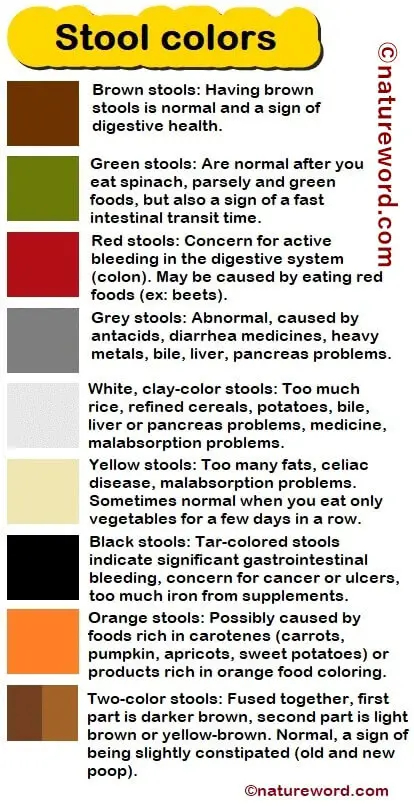Stool color can tell you a lot about your digestive health. By examining the color of your stool, you can gain insight into the presence of certain health conditions and make informed decisions about your overall well-being. Understanding what different stool colors mean can help you identify potential issues early on and seek appropriate medical attention if needed.
Normal stool colors can vary depending on your diet and hydration levels. Generally, healthy stool is brown due to the presence of bile produced by the liver. However, variations in color can occur. For example, green stool may indicate a diet high in leafy green vegetables, while black stool may be a sign of internal bleeding. It’s essential to pay attention to any changes in stool color and consistency to ensure optimal digestive health.
Stool Color Chart Meaning
Abnormal Stool Colors
Abnormal stool colors can be indicative of underlying health issues. For example, yellow stool may suggest a problem with the liver or gallbladder, while red stool may indicate bleeding in the lower gastrointestinal tract. White or clay-colored stool can be a sign of a bile duct obstruction. If you notice any unusual changes in stool color, it’s crucial to consult with a healthcare provider for further evaluation and diagnosis.
Conclusion
Monitoring your stool color can provide valuable insights into your digestive health. By understanding the meaning behind different stool colors, you can take proactive steps to maintain optimal well-being. Remember that changes in stool color should not be ignored and may warrant further investigation by a medical professional. Stay informed and attentive to your body’s signals to ensure a healthy digestive system.
